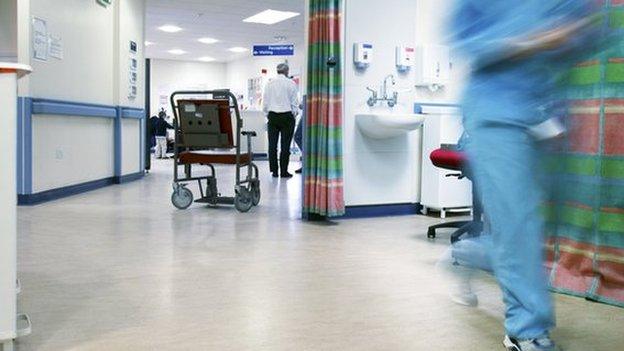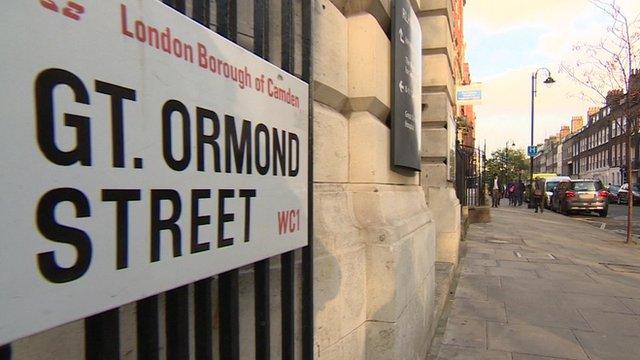Cost of living drives London nurses away and temp costs up - RCN
- Published

The government says it has plans in place to ensure patients "have the best possible care" from the NHS
London hospitals are spending hundreds of thousands of pounds on temporary nursing staff to cover vacancies created by the high cost of living and inadequate wages, the Royal College of Nursing (RCN) claims.
The analysis is based on information from NHS trusts across England between 2020 and 2022.
The NHS in London spent more than £630m on staff, the RCN said.
But the government said the Covid pandemic affected the statistics.
In 2020, RCN London said 57% of the city's nurses said they were "likely" to leave the capital within five years.
They cited the expense of living and working in the city as a factor - which the RCN said bodes ill for the future.

The RCN said rising rents is one of the reasons why nurses are unlikely to stay in the capital
RCN London said the continuing cost of living crisis in the capital, especially the impact of hikes in interest rates, rents and travel costs means the risk of more nursing staff leaving has "spiralled".
"Long before 2020, NHS leaders were grappling with the challenge of recruiting and retaining enough nursing staff in the capital," a RCN spokesperson said.
"Nurse vacancy rates in London have been consistently higher than any other part of the country for several years. Currently, London's NHS has over 10,000 vacant nurse posts.
"At the same time, the health system is desperately trying to get to grips with high waiting times while being told to be more productive and make cost efficiency savings."
RCN chief nurse Prof Nicola Ranger, said: "Ministers have got their priorities wrong - forcing trusts to squander billions on agency staff while they provide miserly funding for fair pay and nurse education.
"With cuts to nurse education and maintaining unfair pay levels, ministers are choosing to spend the money on much higher private agency bills instead, this is yet another false economy when it comes to NHS spending.
"This should act as a wake-up call. The government must give nursing staff and patients the investment and respect they deserve."
A Department of Health and Social Care spokesperson said: "These statistics cover the Covid pandemic when the NHS was under huge additional pressure and staff sickness rates were exceptionally high.
"While temporary staffing allows the NHS to meet fluctuations in demand, we are controlling spending by capping hourly pay and prioritising NHS staff when shifts need filling.
"The long term workforce plan is ensuring the NHS has the staff it needs over the next 15 years so that patients continue to receive the best possible care."

Listen to the best of BBC Radio London on Sounds and follow BBC London on Facebook, external, X, external and Instagram, external. Send your story ideas to hello.bbclondon@bbc.co.uk
Related topics
- Published28 April 2016

- Published7 January 2016

- Published11 December 2014

- Published19 November 2014
